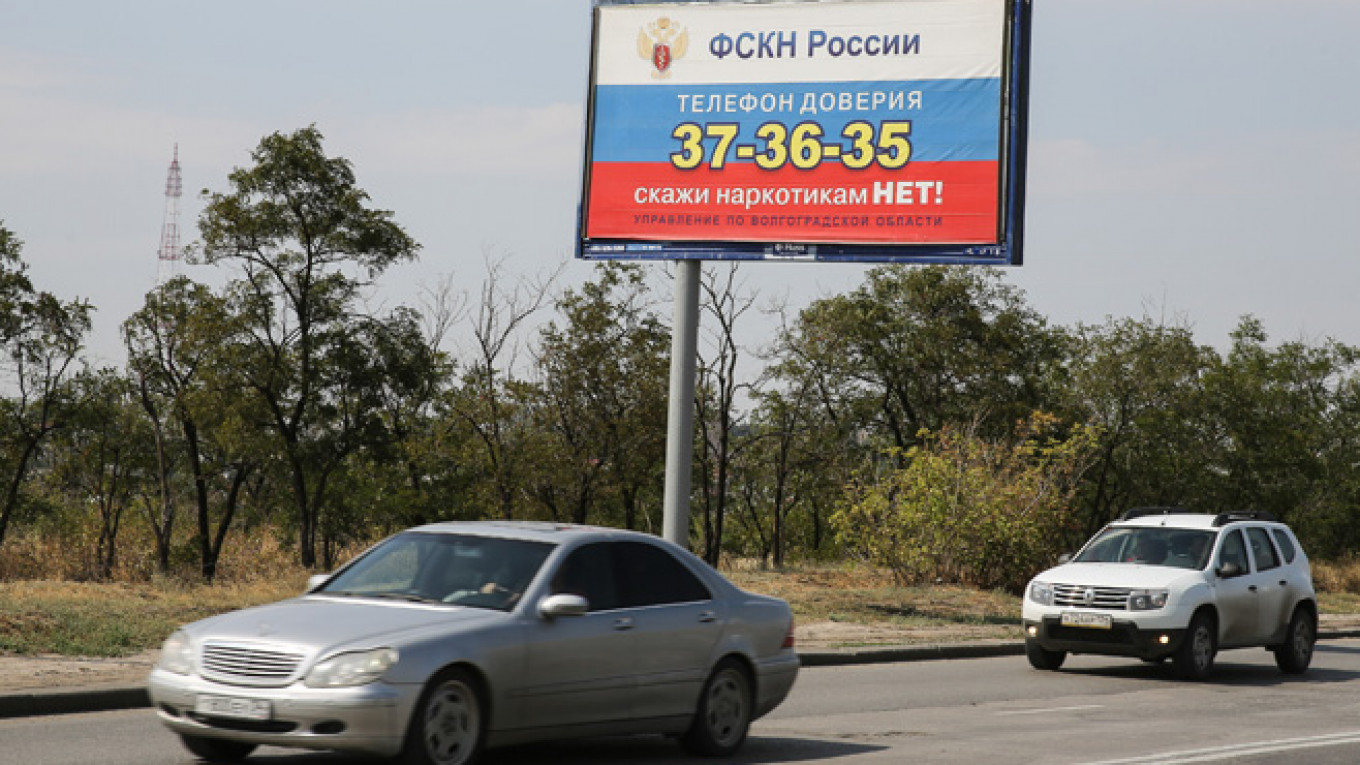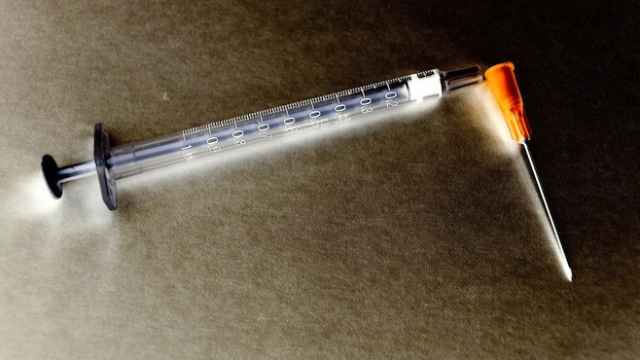The Russian government is likely to disband the Federal Drug Control Service, according to an official document obtained by The Moscow Times.
The document, signed on Feb. 10 by Larisa Brychyova, head of the legal directorate of the presidential administration, cites an order by President Vladimir Putin to dissolve the agency from March 1.
The agency's functions will be redistributed among the Interior and Health ministries, according to the document.
Business daily Vedomosti reported Monday that the agency is being liquidated due to budget considerations.
Putin's proposal will be considered by the Cabinet before becoming official, a process that is generally no more than a technicality for Kremlin initiatives.
The Federal Drug Control Service was established in 2003 on the foundations of the Federal Tax Police Service and employs about 35,000 people, having been ordered by Putin in 2012 to cut its staff by 5,000 people by 2016, news agency Interfax reported. The service was allocated more than 29.5 billion rubles ($473 million) from the federal budget last year, according to its website.
According to the Kommersant daily, drugs policy director Viktor Ivanov — the agency's outspoken head — will likely return to the presidential administration where he served as a presidential aide before joining the agency in 2008.
In an interview with Kommersant last week, Ivanov denied rumors that the agency would be liquidated, saying that in the last five years it had busted almost 350 criminal gangs, "almost 10 times more than all other law enforcement agencies put together." He also said in the interview that since the agency was created, the drug-related mortality rate in Russia has halved.
Last October, Ivanov said that drugs are to blame for 80 percent of all deaths of Russians aged 18 to 34 in Russia during the past five years. The rate has improved, but the number is still too high, Ivanov said in an interview with the TV Center television channel.
There are 8.5 million drug addicts in Russia — almost 6 percent of the population — a government report said in 2013. Many of them are heroin users, supplied by the steady flow of the opiate into Russian from Afghanistan through neighboring Central Asian countries. The Russian Federation has the highest prevalence of opiate use in eastern and southeastern Europe, according to the UN 2014 World Drug Report.
Ivanov and his agency were often criticized for their opposition to drug substitution therapies. As many as 100 drug users in Crimea have died since the peninsula was annexed from Ukraine by Russia as a direct result of the treatment becoming illegal under Russian law, a UN official said in January.
In recent years, Ivanov's agency has found it hard to battle the spread of synthetic marijuana and other smoking blends that are known generally as "spice." Sold widely online, they have caused a spate of recent high-profile deaths.
Longtime anti-drugs crusader Yevgeny Roizman, founder of the City Without Drugs movement in Yekaterinburg, spoke against the decision to disband the agency Monday.
"This agency is much more effective than the police. Moreover, competition between various agencies makes them achieve results," he wrote in his LiveJournal blog.
"After investing loads of money and creating a powerful professional structure that has proved its effectiveness, to then just disband it all is a chaotic and absurd decision. Drug dealers are dancing with joy. Some people in the Interior Ministry are dancing too," he wrote.
Contact the author at i.nechepurenko@imedia.ru
A Message from The Moscow Times:
Dear readers,
We are facing unprecedented challenges. Russia's Prosecutor General's Office has designated The Moscow Times as an "undesirable" organization, criminalizing our work and putting our staff at risk of prosecution. This follows our earlier unjust labeling as a "foreign agent."
These actions are direct attempts to silence independent journalism in Russia. The authorities claim our work "discredits the decisions of the Russian leadership." We see things differently: we strive to provide accurate, unbiased reporting on Russia.
We, the journalists of The Moscow Times, refuse to be silenced. But to continue our work, we need your help.
Your support, no matter how small, makes a world of difference. If you can, please support us monthly starting from just $2. It's quick to set up, and every contribution makes a significant impact.
By supporting The Moscow Times, you're defending open, independent journalism in the face of repression. Thank you for standing with us.
Remind me later.






